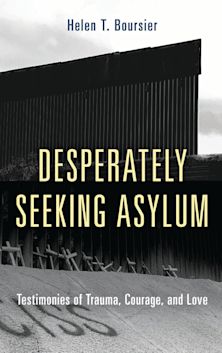Black Beaches and Bayous
The BP Deepwater Horizon Oil Spill Disaster
Black Beaches and Bayous
The BP Deepwater Horizon Oil Spill Disaster
Description
Black Beaches and Bayous: The BP Deepwater Horizon Oil Spill Disaster provides a multidisciplinary, international perspective on one of the major disaster events within the United States during the last ten years. Scholars from various disciplines including sociology, political science, ecology, psychology, and criminal justice investigate the different components and issues associated with this event. The contributors address topics such as the social and historical context of fossil fuel use, steps within the technological disaster process, and similarities and differences between this disaster and other technological disasters. They also discuss the social and psychological impacts on Gulf Coast residents, the transformation of natural ecological systems, changes in risk assessment, and media portrayals of the Obama administration and its response to this disaster.
Table of Contents
Tables
Foreword by Dr. George L. Amedee
Preface by Dr. Lisa A. Eargle and Dr. Ashraf M. Esmail
Acknowledgments
Chapter One—The U.S. Oil Industry’s Safety Record and the Need For More Domestic Oil Production
Jude Clemente
Chapter Two—Applying Technological Disaster Process Models to the BP Deepwater Horizon Oil Spill Disaster
Lisa A. Eargle, Ashraf M. Esmail, Jas M. Sullivan, and Shyamal K. Das
Chapter Three—Beyond Petroleum in the Gulf of Mexico: The Characteristics and Consequences of Catastrophe
John Barnshaw and Lynn Letukas
Chapter Four—Corporate Catastrophes from UC Bhopal to BP Deepwater Horizon: Continuities in Causation, Corporate Negligence,
and Crisis Management
Tomás Mac Sheoin and Stephen Zavestoski
Chapter Five—The Effects of Oil Spills on Ecological Systems
Jeffrey R. Wozniak
Chapter Six—The Gulf Oil Spill, Ecological Debt, and Environmental Justice in Louisiana: Lessons From Sociology
Timothy J. Haney
Chapter Seven—A New Geography of Trouble
Daina Cheyenne Harvey
Chapter Eight—Ecological Identity and Disaster Recovery in an Oil-Stained Landscape: Current and Future Policy Implications
DeMond Shondell Miller, Jason David Rivera, and Brandon Eric Fleming
Chapter Nine—The Crude Awakening: Gulf Coast Residents Reflect on the BP Oil Spill and the 2010 Hurricane Season
Michelle Meyer Lueck and Lori Peek
Chapter Ten—The Ninety-Day Storm: Mississippi Community Response to the Deepwater Horizon Oil Spill
Jason S. Gordon and A. E. Luloff
Chapter Eleven—Disaster Vulnerability: The Differential Impact of the Deepwater Horizon Disaster Among Alabama’s Gulf Coast Residents
James Hawdon and John Ryan
Chapter Twelve—Disaster Phases, Structural Vulnerability and Crime
Kelly Frailing and Dee Wood Harper
Chapter Thirteen—Hazard, Outrage and Locality: An Analysis of Two Oil Spills
Amanda K. Goddard, Kenneth A. Lachlan and Patric R. Spence
Chapter Fourteen—Resisting Corporatism: Citizens Fight Back Against the BP Deepwater Horizon Oil Spill Disaster
Stan C. Weeber
Chapter Fifteen—Disaster Distrust: Risk Assessment, Citizen Science and Technolegal Debates in the BP Oil Spill
Sabrina McCormick
Chapter Sixteen—The President, the News, and the Oil Spill: An Examination of National and State Newspapers’ Framing of Obama and His Administration’s Response to the Deepwater Horizon Gulf Oil Spill
Jas M. Sullivan and Meghan S. Sanders
Editors
Contributors
Product details
| Published | Nov 02 2012 |
|---|---|
| Format | Ebook (Epub & Mobi) |
| Edition | 1st |
| Extent | 332 |
| ISBN | 9780761859796 |
| Imprint | University Press of America |
| Illustrations | 12 Charts, 15 Tables |
| Publisher | Bloomsbury Publishing |

































